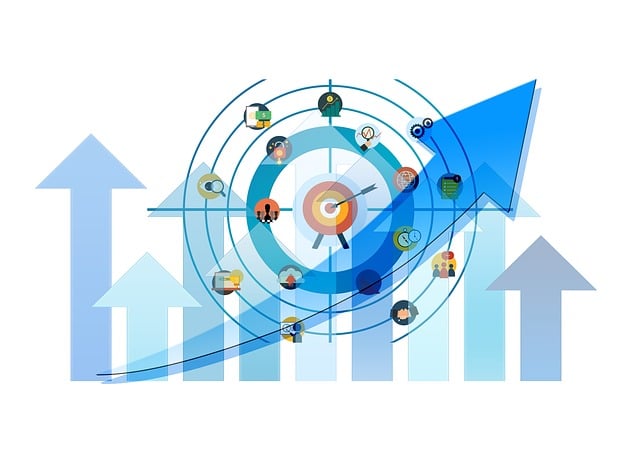Separation coaching is a growing field addressing the emotional and logistical needs of individuals facing divorce or separation in today's fast-paced world. Divorce coaches provide guidance, tools, and strategies for navigating complex conversations, promoting open communication, and achieving cooperative divorces or low-conflict separations. These professionals offer emotional support, objective perspectives, and structured processes to help clients establish clear goals, facilitate effective communication, and make informed decisions about assets, custody, and post-divorce boundaries, ensuring a smoother and less stressful transition. Choosing a qualified coach involves considering personalized needs and thoroughly researching their credentials and testimonials.
Divorce is a complex and emotional process, often leaving individuals feeling overwhelmed. This is where separation coaching steps in as a powerful tool for navigating this challenging time. This article explores the benefits of hiring a divorce coach, who offers much-needed support and guidance. From improving communication to providing decision-making strategies, these professionals help clients manage the emotional and logistical aspects of separation. By understanding the role of a divorce coach, you can take the first step towards a smoother and more manageable divorce experience.
- Understanding the Need for Separation Coaching
- Key Roles of a Divorce Coach
- Benefits of Professional Support During Divorce
- The Process and Techniques Used in Coaching Sessions
- Preparing for Life After Divorce with a Coach
- Finding and Selecting the Right Divorce Coaching Service
Understanding the Need for Separation Coaching

Divorce coaching is a growing field that addresses the complex emotional and logistical needs of individuals facing separation. Many people find themselves overwhelmed by the process, from figuring out child custody arrangements to deciding on asset division. This is where professional separation coaching comes in as a valuable resource. It offers individuals a supportive space to navigate their unique circumstances with guidance and clarity.
The need for separation coaching is evident in today’s fast-paced world, where divorce rates continue to rise, often leaving people feeling isolated and uncertain. Traditional legal processes can be intimidating and adversarial, making it difficult to reach mutually beneficial agreements. Cooperative divorce services focus on fostering a collaborative environment, encouraging open communication, and promoting understanding between parties, ultimately leading to more peaceful legal separations or low-conflict divorces.
Key Roles of a Divorce Coach

Divorce coaches play a multifaceted role in supporting individuals during what can be an emotionally charged and complex process. They serve as more than just a therapist; they act as guides, offering practical tools and strategies to navigate both emotional and logistical aspects of separation. Through coaching sessions, individuals gain clarity on their feelings and needs, enabling them to make informed decisions about their future.
A key role of a divorce coach is to facilitate effective communication, helping clients express their desires and boundaries in a healthy way. They teach skills for constructive conversations, ensuring that both parties can navigate discussions about assets, custody, and other crucial matters with respect and minimal conflict. Moreover, coaches assist in exploring options like collaborative mediation or peaceful legal separation, promoting low-conflict separation strategies to help individuals achieve mutually beneficial outcomes.
Benefits of Professional Support During Divorce

Divorce coaching services offer a wealth of benefits for individuals navigating this challenging life transition. Professional support during divorce can provide much-needed emotional guidance, helping clients process their feelings and cope with the stress and anxiety associated with separation. Coaches offer an objective perspective, facilitating open communication and fostering healthier interactions between spouses, which is especially crucial when children are involved.
Additionally, these services equip individuals with valuable decision-making strategies tailored to their unique situation. By assisting in areas like financial planning, asset division, and legal aspects, coaches ensure clients make informed choices during the civil divorce process. This support can be invaluable for those seeking a peaceful legal separation or low-conflict separation help, promoting a less contentious and more cooperative divorce experience.
The Process and Techniques Used in Coaching Sessions

Divorce coaching sessions are designed to be a supportive and confidential space where individuals can explore their emotions and navigate the complexities of the civil divorce process. The initial step involves establishing clear goals with the coach, who will then employ various techniques to facilitate personal growth and effective decision-making. These include active listening, emotional regulation strategies, and communication skills training, which are crucial for managing high-stakes conversations during separation.
Coaches often guide clients through a structured process, starting with understanding their unique circumstances and aspirations. This may involve discussing financial matters, parenting plans (if applicable), and legal considerations, ensuring a peaceful legal separation. Through this journey, coaches employ tools such as cognitive reframing to challenge negative thought patterns, promoting a more optimistic outlook on the future. The ultimate goal is to empower individuals to make informed choices, maintain dignity, and foster a sense of agency throughout their divorce experience.
Preparing for Life After Divorce with a Coach

Preparing for life after divorce can be a daunting task, but with the guidance of a separation coach, individuals can navigate this transition with greater ease and clarity. These professionals empower clients to address the emotional aspects of separation, helping them process complex feelings and gain perspective on their situation. Through one-on-one sessions, coaches offer a safe space for clients to express their concerns, fears, and aspirations without judgment.
By employing tailored strategies, divorce coaching services facilitate effective communication between separated partners, fostering a cooperative divorce environment. This approach is particularly beneficial for those seeking a more peaceful and collaborative process, aiming to minimize conflict and create mutually agreeable solutions. Whether it’s determining asset distribution, deciding on child custody arrangements, or establishing post-divorce boundaries, a coach provides valuable support, ensuring individuals are equipped to make informed decisions during this life-changing event.
Finding and Selecting the Right Divorce Coaching Service

Choosing a qualified and experienced divorce coach is crucial for navigating this challenging life transition effectively. When searching for the right separation coaching service, consider your unique needs and preferences. Some coaches specialize in low-conflict separation help, providing gentle guidance and support to those who want to maintain a respectful relationship with their ex-partner. Others offer collaborative mediation techniques, fostering open communication and mutual understanding.
To select the best fit, research potential coaches thoroughly. Check their credentials, training, and areas of expertise. Look for reviews or testimonials from previous clients to gauge their satisfaction levels. Remember, the ideal coach should be non-judgmental, empathetic, and skilled in guiding you through each stage of the divorce process, ensuring a smoother transition both emotionally and logistically.
